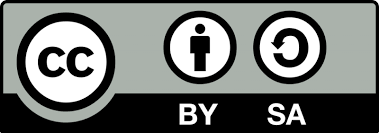Secondary education teachers point of view on the departments in the state high schools of the Autonomous Community of Aragón. A field research carried out by education inspectors
DOI:
https://doi.org/10.23824/ase.v0i21.89Downloads
Abstract
In the years 2005-2006 to 2007-2008 the Education Inspectorate in Aragón provided a series of facts with their field research and reports on the organization and functioning of the academic departments in public High Schools and the cycle teams in Pre-Primary and Primary Schools. In 2005 a group of education inspectors carried out a research in a sample of secondary schools in Huesca and Zaragoza provinces, whose facts are made public because they are fully valid at present. These facts revealed, corroborated with other studies, typical dynamics of the organizational tradition and the work culture of the secondary schools teachers, together with emerging changes in the way the teacher collaboration in High Schools was carried out since the nineties. These days, once the Education Act 8/2013 for the improvement of education quality (LOMCE) has been promulgated, a new reading of the 2005 research conclusions emphasises new challenges for the Education Inspectorate in Aragón, whose intervention in the academic departments is getting better since the year of the study that is being presented just now.
How to Cite
Issue
Section
Published
Keywords:
academic departments, teacher collaboration, education inspectorate, teacher work cultureLicense

Attribution Share-Alike CC BY-SA
Those authors who have publications with this magazine, accept the following terms:
A) The authors will retain their copyrights, which will be simultaneously subject to the Creative Commons Attribution License that allows others to re-mix, modify and develop on your work even for commercial purposes, provided they credit you And to license their new works under the same terms.
B) The authors will retain the rights of exploitation of the intellectual property of this work, and especially the rights of reproduction, distribution, transformation in any of its modalities and public communication of said work, which will be simultaneously subject to the License Of recognition of Creative Commons that allows others to re-mix, modify and develop on your work even for commercial purposes, provided they credit you and license your new works under the same terms.
Creative Commons Attribution-ShareAlike 4.0 International Public License

